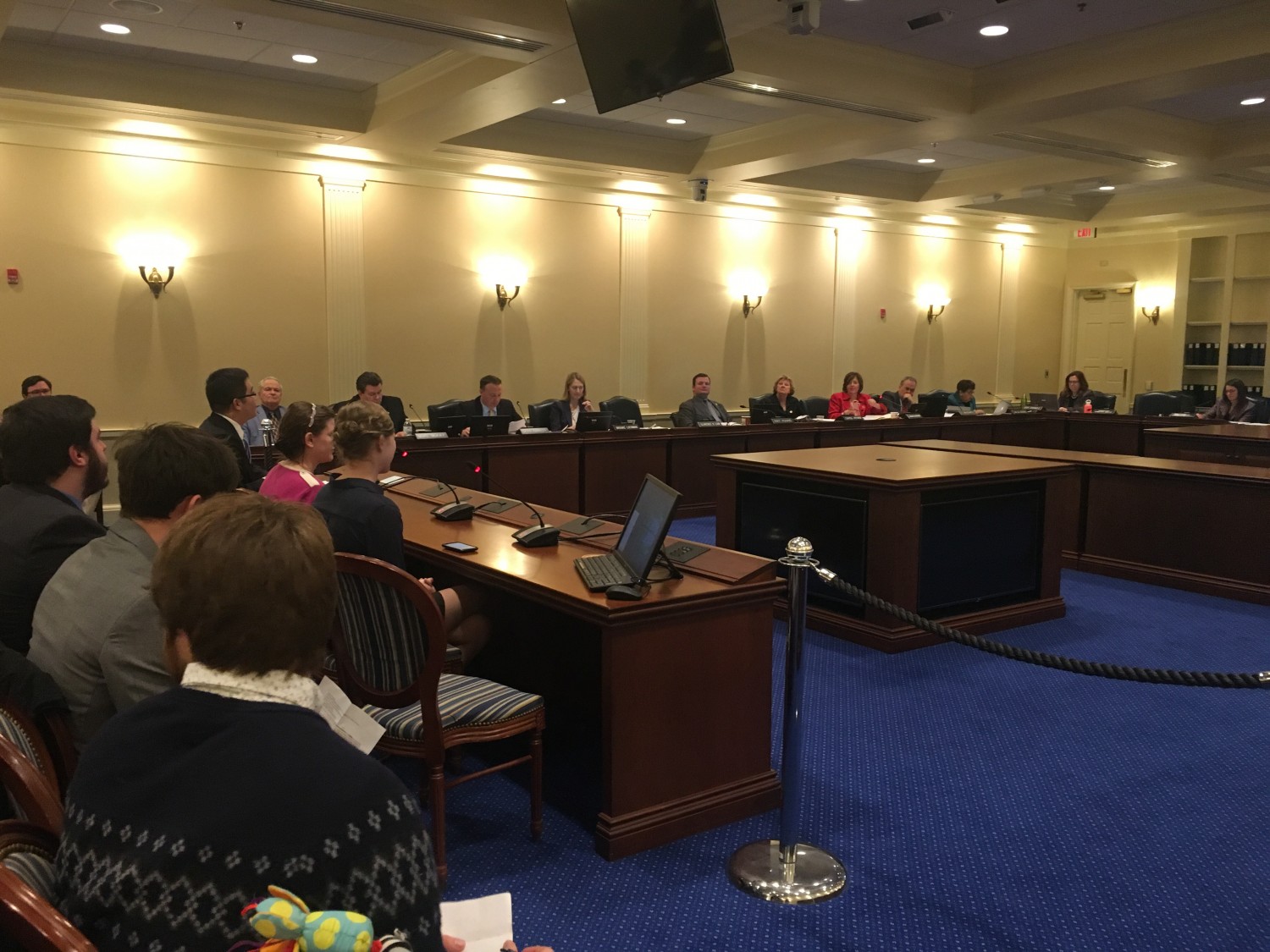Pay for University of Maryland graduate student assistants could soon be on the rise, university President Wallace Loh told NPR on Thursday.
In an appearance on The Kojo Nnamdi Show, Loh said campus officials are working on a plan to increase stipends for graduate student assistants. The plan is still in its proposal stage and is not ready to be shared, university spokeswoman Katie Lawson wrote in an email.
Graduate Student Government President Michael Goodman said when Loh — who appeared on the show to talk about his desire to invest in the surrounding College Park community — mentioned this idea, it was the first time he heard that one was in the works.
[Read more: Graduate Student Government will add a diversity and inclusion vice president]
While Goodman said he is excited to see the plan, he is disappointed the GSG was not involved in its creation. Goodman said he hopes the plan includes feedback from the Fearless Student Employees Coalition, which was founded to fight for legal employee status and collective bargaining rights for this university’s undergraduate and graduate student workers, according to its OrgSync website. Under Maryland law, undergraduate and graduate student workers are not afforded collective bargaining rights.
Loh’s statement came in response to the coalition’s president, communication doctoral student Yvonne Slosarski, who tweeted at the show asking why Loh is “investing in College Park and not Graduate Assistants (GA) and Adjunct Professors.”
The minimum stipend for a nine-and-a-half month assistantship of a graduate student worker is $16,144, according to the graduate school’s website. In February, more than 100 graduate students and faculty members from across the University System of Maryland submitted testimony to the state’s Senate Finance Committee in favor of a bill that would grant graduate student workers at system institutions collective bargaining rights.
With these rights, graduate assistants could negotiate wages and other terms of employment with the graduate school. Under the current meet-and-confer system, which allows graduate students and the graduate school to debate job-related issues without a structured agreement, many assistants say they can’t effectively do this.
The bill has not been sent to the floor for a vote in either the House or the Senate, and with the final day of the 2018 legislative session on Monday, it will likely fail to pass.
GSG Public Relations Vice President Katie Brown said she was “thrilled” to hear Loh talk about a plan to increase stipend levels. But the communication doctoral student added that she is also “wary to get excited,” as graduate school Interim Dean Steve Fetter and a system representative testified against the collective bargaining bill.
In his testimony, Fetter said collective bargaining would “foster an adversarial relationship between University administration and graduate students.” The system representative added that while the meet-and-confer process “doesn’t always work terribly well,” the group believes collective bargaining would not necessarily improve the situation.
In the March 2018 issue of GradTerp Magazine, Fetter said current funding for graduate assistantships and fellowships is inadequate, but focused on the need for more fellowships “to attract and to retain the best and brightest students from around the country.”
[Read more: Over 100 UMD grad students and faculty testified in favor of collective bargaining bill]
“As we set our sights on the next 100 years of graduate education here at Maryland, this is something we will be working on with you and our graduate program partners,” he wrote.
The GSG also tweeted at the radio show the day of Loh’s appearance, asking what the school’s president is “doing to ensure that there is affordable housing for graduate students in College Park.”
Graduate Gardens and Graduate Hills are the only two all-graduate housing communities on university property, according to the Department of Resident Life’s website. Monthly rent starts at $1,247, according to the apartment complex’s website.
Loh said the university is “looking into” ways to make housing more affordable in the College Park area, but Brown was not satisfied with his response.
“I’m very hesitant to be excited that there’s actually a plan in place to increase stipends when he’s on a radio show talking about building the College Park community and he can’t adequately answer the question as to how he’s going to make sure students can afford to live here,” she said.



